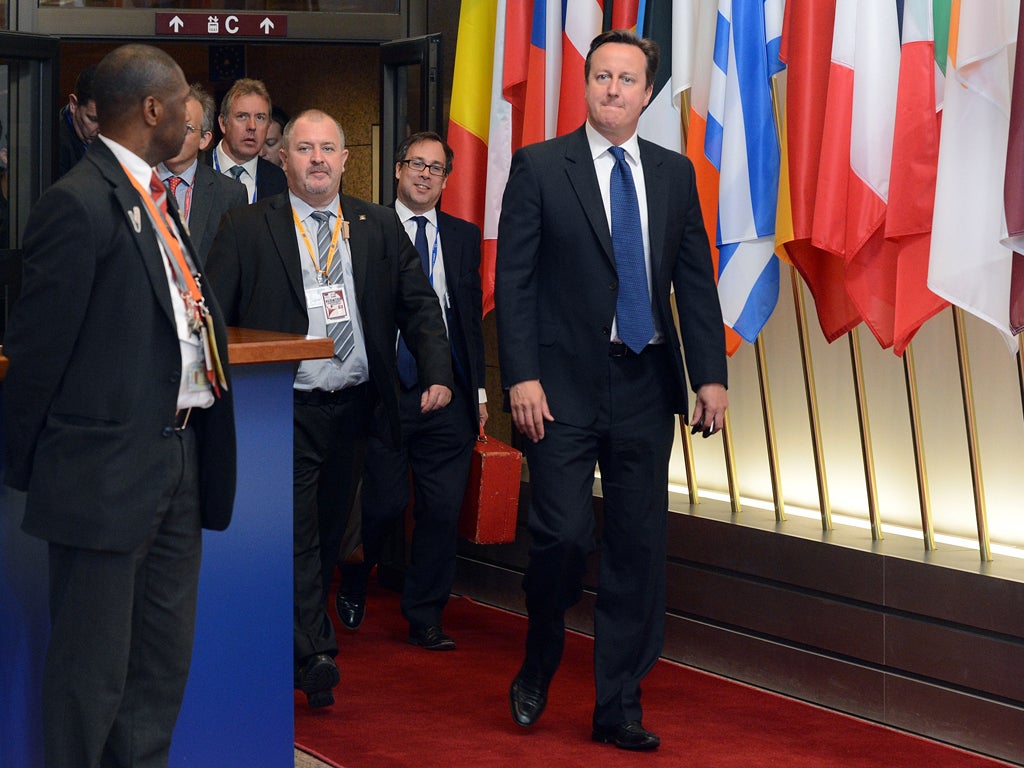Britain, the EU and the Commonwealth
It should be no surprise that some of the biggest leaps in UK exports - of both goods and services in the last two years have been to Commonwealth countries

It was James Maxton, the veteran Labour leader in the inter-war years, who said that if you can’t ride two horses you had no right to be in the (bloody) circus.
Today this is exactly what an agile Britain has to do if we are to survive and prosper. We have to take a constructive lead in the reform of the grievously divided and troubled European Union, AND we have to use every available network to penetrate deep into the giant and rising markets of Asia, Africa and Latin America. And of course the best network we have to hand to assist with that is the ready-made Commonwealth network – re-invigorated in the age of almost total connectivity and interactivity, with a common working language, embracing now a dozen or more of the world’s fastest growing economies and providing a gateway to still more of the great emerging markets of the 21 century.
This is the opposite of what we were told forty years ago, in 1972/73. Then the received wisdom was that Britain’s global interests were finished, the Commonwealth could be ignored and our destiny lay in wholehearted participation in the great European single market.
That may have been right then, but today, four decades later, we are the other side of the internet revolution and the entirely new pattern of power and markets it has created. The wheel of economic fortune has turned full circle. It is now outside the EU where all the growth for the next two decades or so is likely to occur and where much of the wealth is going to be generated to finance the capital projects the world needs – including those in the debt-ridden West.
On the best estimates the EU share of global GDP is set to shrink (to 15 per cent by 2020) while other areas expand. The Euro-zone share could be as little as 11.9 per cent according to the IMF).The Commonwealth countries are projected to grow over the next five years by 7.2 per cent.
Of course the modern Commonwealth (54 member states, with several more in the waiting room to join) has no specific trade track. That would have mattered twenty years ago, but today not only are tariff barriers mostly far lower or negligible, but trade flows are taking a completely different shape, with complex supply chains snaking through economies on several continents, South and North, East and West.
Determinants of trade flows are now set as much by foreign direct investment decisions (themselves driven by local conditions, culture, political risk, familiarity, trust etc) and by non-tariff barriers, regulations, procedures, customs and attitudes, as by yesterday’s tariff walls. Services and knowledge products, barely featuring in trade calculations forty years ago, or earlier when the original EEC was founded, now have a central position in international exchange.
Trade now follows not the flag but the relationships built up layer upon layer by soft power deployment and diplomacy.
It should be no surprise that some of the biggest leaps in UK exports - of both goods and services in the last two years (2010-2012) have been to Commonwealth countries – viz 33.5 per cent to India , 31.2 per cent to South Africa, 30 per cent to Australia, 18.3 per cent to Canada.
All the EU member states have got to equip themselves with these new relationship techniques of soft power deployment if they want to maintain their prosperity and survive in a super-competitive new world. But for Britain the dice could have truly landed the right way up. At Government level (most visible to the media) there may be intra-Commonwealth differences, even family quarrels and stand-offs. Adherence to common values may fall short; back-sliding occurs.
But that is just the visible tip of things. The genius of the Commonwealth network is that it is people-driven, civic society driven, community driven, common interest driven and, increasingly, market and business driven. That is why the age of hyper-connectivity has acted like a blood transfusion to a network covering almost a third of humankind - half of them under 25, half of them women struggling to have their full and rightful place, millions of them young entrepreneurs aspiring to break out of the development dead-ends, many of them from smaller states and islands (32 of them in the Commonwealth) to whom globalisation has given no chance.
The transformed international scene is now filling up with a quilt of new networks and alliances , some involving the old West, some excluding it altogether. The Commonwealth is only one of these new , or renewed, systems. But it is a mighty one and for a heavily interdependent Britain it is a huge potential asset in every respect, both from the trade and business point of view and from the point of view of our contribution to peace, stability and development.
We should both grasp the opportunities this brings , and share them where we can with our struggling European neighbours. The two horses can be ridden- so long as we keep our balance , and our confidence!

Join our commenting forum
Join thought-provoking conversations, follow other Independent readers and see their replies